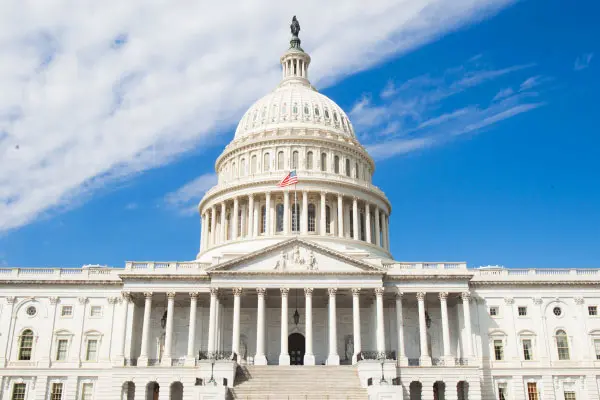Updates on Current Federal Telehealth Legislation
08/10/2020
By Maddie Mason, Senior Policy Associate
Access to telehealth, which the National Institutes of Health (NIH) defines as the exchange of medical information from one site to another through electronic communication to improve patient’s health, has been a significant issue for patients, providers, payers, and regulators for some time now. Congress, the administration, private insurers, and health care providers have responded to the COVID-19 pandemic and related shut-down orders by creating new temporary opportunities to seek care through telehealth. This is going to have lasting impact on the health care system, as patients are likely to demand access to telehealth services that they just used for the first time and as providers have become more able to deliver care remotely. This is going to create an even greater need for and interest in policy solutions to increase use of this essential service. The National Health Council (NHC) has been closely following Congressional and other efforts to increase access to telehealth. Following are some of the bills that are currently being considered in Congress.
Executive Order on Making Telehealth Flexibilities Permanent and Increasing Access to Rural Health
On August 4, President Trump signed an Executive Order on Improving Rural Health and Telehealth Access. The purpose of the Executive Order is to make some of the telehealth flexibilities that have been placed during the COVID-19 emergency permanent, and to address the unique challenges facing Americans living in rural communities when seeking health services.
The Executive Order includes the following provisions:
- Within 60 days, the Centers for Medicare and Medicaid Services (CMS) is to issue a proposed regulation to extend COVID-19 telehealth flexibilities beyond the public health emergency; and
- Within 30 days, CMS is to:
- Announce a new model to test payment mechanisms that give rural providers more flexibilities to provide care;
- Develop and implement a strategy to improve physical and communication infrastructure to improve rural health (subject to the availability of appropriations); and
- Submit a report to the president about existing or new policy efforts that:
- Address regulatory burdens that limit availability of clinicians in rural areas;
- Improve rural health outcomes;
- Reduce maternal mortality/morbidity; and
- Improve rural mental health.
The Connect for Health Act (H.R. 4932/S. 2741)
The Connect for Health Act was introduced in October 2019 by Senators Brian Schatz [D–HI], Roger Wicker [R–MS], Thad Cochran [R–MS], Ben Cardin [D-MD], John Thune [R-SD], and Mark Warner [D-VA] and Representatives Diane Black [R-TN], Peter Welch [D-VT], and Gregg Harper [R-MS]. This legislation:
- Creates a bridge program to help providers transition to the goals of the Medicare Access and CHIP Reauthorization Act (MACRA) and the Merit-based Incentive Payment System (MIPS) through using telehealth and remote patient monitoring (RPM);
- Allows telehealth and RPM to be used by qualifying participants in alternative payment models;
- Permits the use of RPM for certain patients with chronic conditions;
- Allows, as originating sites, telestroke evaluation and management sites; Native American health service facilities; and dialysis facilities for home dialysis patients in certain cases;
- Permits further telehealth and RPM in community health centers and rural health clinics;
- Allows telehealth and RPM to be basic benefits in Medicare Advantage; and
- Clarifies that the provision of telehealth or RPM technologies made under Medicare by a health care provider for the purpose of furnishing these services shall not be considered “remuneration.”
Telemental Health Expansion Act (H.R. 5201)
The Telemental Health Expansion Act was introduced by Representatives Doris Matsui [D-CA] and Mike Johnson [R-LA] on November 21, 2019. This legislation waives geographic restrictions in Medicare’s reimbursement guidelines for mental health services that are delivered through telehealth and includes the patient’s home as an eligible originating site.
Evaluating Disparities and Outcomes of Telehealth During the COVID-19 Emergency Act of 2020 (H.R. 7078)
The Evaluating Disparities and Outcomes of Telehealth During the COVID-19 Emergency Act was introduced by Representatives Mike Kelly [R-PA], Rob Bishop [R-UT], Sheila Jackson Lee [D-TX], Terri Sewell [D-AL], Bernie Thompson [D-MS], Marcia Fudge [D-OH], G.K. Butterfield [D-NC], Donald Payne [D-NJ], Barbara Lee [D-CA], Steve Cohen [D-TN], Mike Johnson [R-LA], and Michael San Nicolas [D-GU] on June 2, 2020. This legislation requires the Secretary of Health and Human Services (HHS) to gather nationwide data on the number of telehealth visits, the health care facilities providing telehealth services, and what services the patients received.
KEEP Telehealth Options Act (H.R. 7233)
The KEEP Telehealth Options Act was introduced by Representatives Troy Balderson [R-OH] and Cindy Axne [D-IA] on June 18, 2020. This legislation instructs HHS and the Government Accountability Office (GAO) to study and report to Congress on the expansion of telehealth services during the COVID-19 outbreak, the uptake of those services by patients across the country, and GAO’s recommendations for enhancing the quality of and access to these services.
The National Health Council will update this list as new legislation is introduced.
